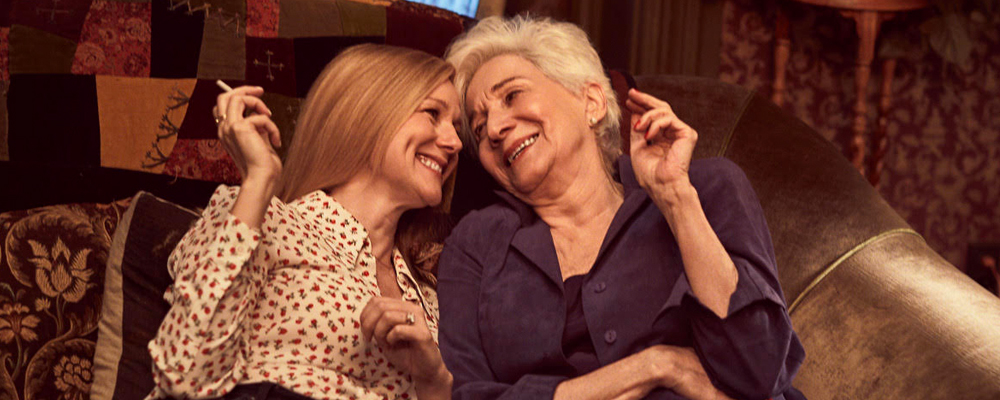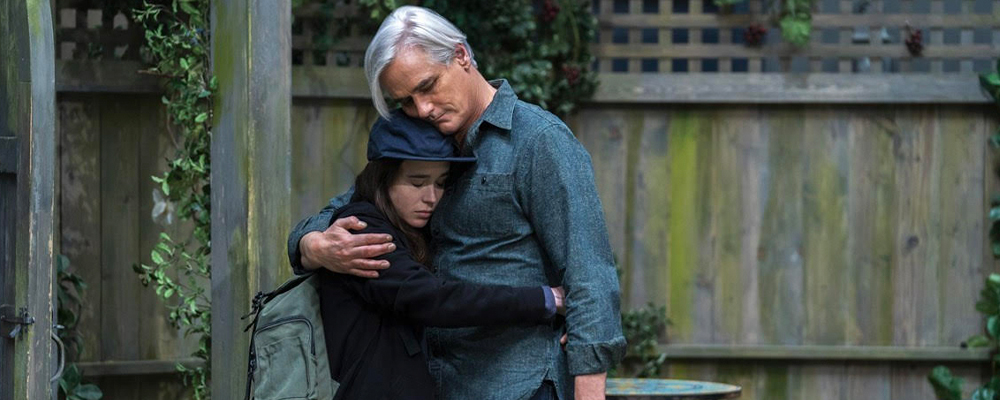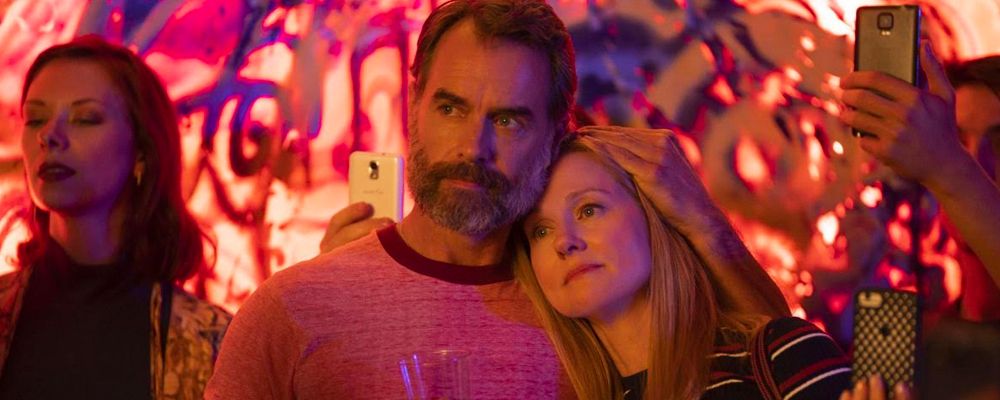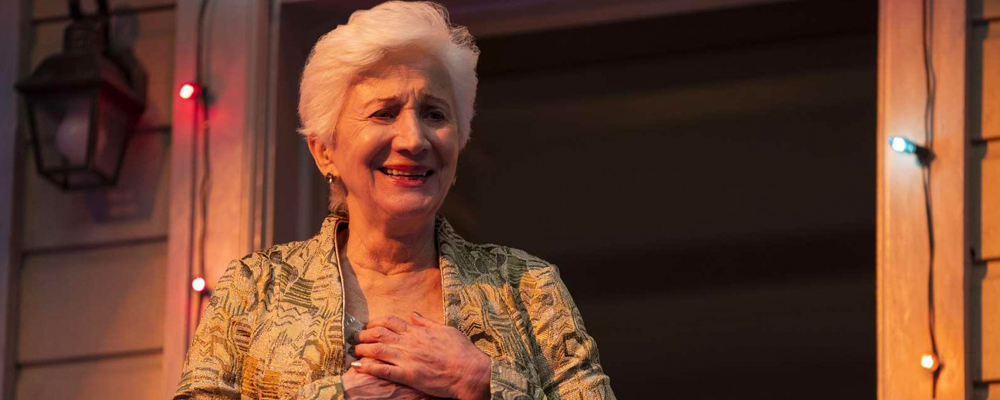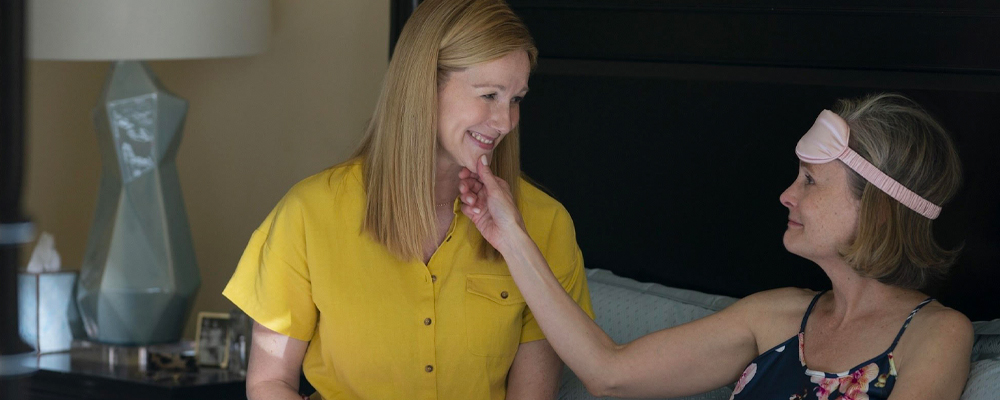‘Armistead Maupin’s Tales of the City’: A Beloved Story Is Updated for a New Era
Alci Rengifo
Past gems continue to make comebacks. Netflix makes the latest attempt with a continuation of Armistead Maupin’s beloved “Tales of the City.” Maupin’s novels focusing on LGBTQ life in San Francisco have already seen three adaptations originally through a series of British-Showtime collaborations in the 1990s. Netflix now updates the world of 28 Barbary Lane, with Maupin as an executive producer, for a more open era, in a city now facing the changes wrought by gentrification.
It’s been 20 years and we’re back at 28 Barbary Lane where Anna Madrigal (Olympia Dukakis) is about to turn an impressive 90-years old. The community Anna has supported for so long is preparing to celebrate, including Michael ‘Mouse’ Tolliver (Murray Bartlett), Jake (Garcia), Anna’s caregiver, Margot (May Hong) and many others. Arriving unexpectedly for the festivities is Anna’s prodigal daughter Mary Ann (Laura Linney), who left Barbary Lane and San Francisco long ago to pursue her own path. She also left a daughter behind, Shawna (Ellen Page), who isn’t too keen on seeing her missing mom return. Mary Ann’s ex-husband Brian Hawkins (Paul Gross) also doesn’t look too excited to see her again. Even Mary Ann’s new, openly homophobic husband Robert (Michael Park) looks ready to bolt the moment he sees all of the queer party goers at Anna’s birthday. But now that she’s back Mary Ann has to face the ghosts of her past, even as she keeps close the secret of Shawna’s actual origins. Meanwhile, Anna faces the encroaching gentrification wave, and is considering the unthinkable: Selling Barbary Lane.
This new edition of “Tales of the City” carries with it the sensation of returning to a familiar place after a long passage of time. It can even feel in its style and writing like a throwback to a particular form of 90s television, the feel-good family dramas where life’s human problems take on enormous dimensions. Even the cinematography looks like an artifact from two decades ago, but in a good way because it flows seamlessly into the narratives from the past series. Maybe Netflix has been building up to this moment after reviving the corny sitcom “Full House” as “Fuller House” and adapting a 1980s indie like “She’s Gotta Have It” into a full, contemporary show. “Tales of the City” now becomes contemporary while maintaining, its light, heartfelt tone. For the first few episodes of this season there’s barely much of a continuing plot, instead the writing likes to linger on the lives of characters who feel quite authentic.
Under executive producer/writer Lauren Morelli, in collaboration with Maupin, the show’s team of all queer writers and directors find a strong balance in celebrating a community while finding heartbreaking, at times funny, storylines to follow. Many of the best moments are the small ones, like when Shawna first greets Mary Ann with a mere fist bump at Anna’s birthday party, pretending as if she doesn’t care, or when Michael and his boyfriend Ben (Charlie Barnett) come across Michael’s ex at a clinic. The ex makes great money flipping houses, flashes a leather business card and inspires a low-burning jealousy in Ben. Basic and homophobic Robert too withers into a seething jealousy when Brian greets Mary Ann. There are also the neighborhood’s fame-seeking siblings, Jennifer (Ashley Park) and Jonathan (Christopher Larkin), who update this show for the social media age as they obsess over becoming Instagram stars. In the style of recent shows like “Vida,” the material is crafting a world of individuals, and here we also see them make love, share quiet moments on rooftops, flirt with each other and hide emotional scars.
Yet “Tales of the City” doesn’t shy away from the legacy of its previous incarnations. Amid the romantic dramas and emotional roller coasters, it explores social and sexual debates and politics head on. Ben, a black man, at one point endures a group of white gay men throw around transgender slurs, claiming some kind of right because they survived the worst of the AIDS crisis. This creates tension with Michael, who doesn’t interfere even if he disagrees with the slurring. Jake, who has transitioned, is in a relationship with Margot but begins to realize he’s into men. Never does the show treat this material cheaply, but with a resonant insight into the private lives of people. There is some very strong writing in a story angle involving Michael being HIV positive and debating with himself over whether it’s safe to stop using condoms with Ben. Mary Ann’s own relationship with her home and Shawna becomes a journey about not just dealing with past decisions, but facing how our choices affect others. Mary Ann has kept secret that Shawna is actually adopted, taken in by her and Brian when Mary Ann’s high school friend Connie died. It would seem easy for Mary Ann to detach herself from any responsibilities to Shawna since she’s not her biological daughter, but it’s not so easy. Being a parent doesn’t necessarily mean sharing DNA.
If there is a more traditional plot it involves Anna receiving strange letters and visitors. Messages seem to indicate someone has sinister information about her. It soon becomes clear that as overseer of Barbary Lane, which has been a home and haven for so many of these characters, Anna is being targeted by the shadow of gentrification. Little by little old spots are disappearing around the city, only to be replaced by new, pricey hipster joints. Anna’s character, now truly aged, also has elegant moments concerning the passage of time. Sam (Victor Garber), is a hired reader who comes over to Anna’s to read to her, since her eyesight is fading away. The two have beautiful moments which capture the sensuous escape of just reading or hearing a favorite text, but their relationship develops in ways that take on other layers best not to spoil.
The final episodes of the season become about the characters facing up to their various challenges, with most of them coming together to save the one place they all collectively consider home and family. For fans of Maupin’s novels this will be an intriguing continuation of a world they love so deeply, but on its own “Tales of the City” has a lot of heart, and is meant to be enjoyed for its sense of life even when it deals with its more painful avenues.
“Armistead Maupin’s Tales of the City” season one begins streaming June 7 on Netflix.

